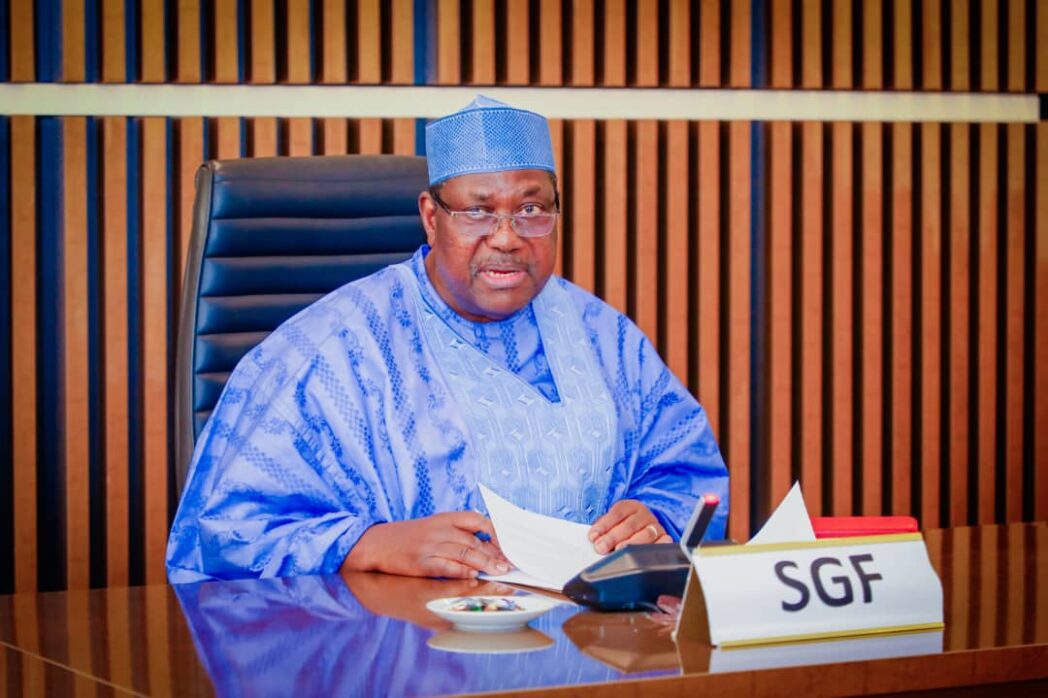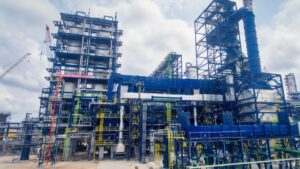


FG mulls $2.4bn revenue, eyes additional crude production of 1m barrels per day
…As petroleum producers outline incentives FG must implement to improve production
…Govt approves ExxonMobil-Seplat divestment, declines Shell-Renaissance deal
The Federal Government has disclosed its intention to generate an additional $2.4 billion revenue (using oil prices as the time of filing this report) through an ambitious goal to ramp up crude production in the country by an additional 1million barrels per day.
This ambitious goal comes at a time when the country is struggling to meet its OPEC quota while battling various challenges impeding production.
The drive to boost oil production is spearheaded by the Nigerian Upstream Petroleum Regulatory Commission (NUPRC) and was announced at the inauguration of the One Million Barrels Oil Per Day (1MMBOPD) Initiative and commemoration of the third anniversary of the NUPRC under the Petroleum Industry Act (PIA 2021).
The project is a NUPRC collaborative initiative to evolve alternative funding mechanisms to unlock incremental oil production in the short-to-medium term with expanded opportunities for all industry stakeholder groups.
Represented by Sen. George Akume, Secretary to the Government of the Federation, Tinubu charged relevant industry stakeholders to join NUPRC in realising set goals of incremental oil production targets within specific timelines.
He said the shared responsibility initiative would be a collaborative undertaking, involving government agencies, major producers, service providers, financiers, host communities and other stakeholders.
This, he said, would expand government revenue, eradicate poverty and increase Gross Domestic Product (GDP) in a sterile, shared prosperity.
“These commitments will be critical in ensuring that we achieve an incremental production in the next 12 months. Growing not just production levels, but also increasing efficiency and competitiveness of our industries.
“This initiative is of national importance and it should support Nigeria’s economic recovery and growth,” the president said.
He said that when his administration came on board, it introduced policy reforms and interventions, and such on the path of stability, growth, and sustainability which had begun to yield fruits.
Meanwhile, the Chairman of the Independent Petroleum Producers Group (IPPG), Abdulrahman Isa commended the NUPRC for the initiative of the Project One Million Barrel of Oil Per Day (Project 1MBOPD) noting that it is a step in the right direction.
He added further that the success of this initiative will take production to the region of 2.5 million BPD thus putting the country in a position to meet domestic crude oil demand and export commitments.
The IPPG Chairman however urged the government to take into consideration certain incentives and relaxation of certain positions to achieve the goal of Nigeria’s oil production reaching 2.5mmbpd.
He highlighted the measures to include: “Relaxation of provisions that allows more service providers to return to the country and allow upgrades for local ones under the NCDMB guidelines.
“Simplification and speed up processes for acquisition of goods and services by providing MSAs that can be used by all as the basis for activity deliveries.
“Revision FAT procedures to use certified international agencies.
“Allowance for operators to sort out AG disposal systems and give more time for implementation.”
In the same vein, the Chairman of Heirs Holdings Group, UBA Group, and Transcorp Group, Tony O. Elumelu while delivering a keynote message at the 3rd anniversary of the Nigerian Upstream Petroleum Regulatory Commission (NUPRC), held at the Transcorp Hilton, Abuja, themed “Transformation, Innovation & Excellence,” attended by key stakeholders in Nigeria’s energy sector congratulated the NUPRC on its achievements in the last three years and emphasised the urgency of addressing Nigeria’s declining oil production.
“Nigeria’s oil production has been on a downward trajectory, falling from peaks of over 2 million barrels per day to recent lows, below 1.5 million.”
“This decline translates to lost revenues, reduced global market share, and missed opportunities for national development,” he said.
He highlighted aging infrastructure, security issues in the Niger Delta, and stalled investments as key challenges.”
In response to this crisis, Elumelu applauded NUPRC’s bold “Project 1MMBOPD,” an initiative aimed at increasing Nigeria’s oil production by 1 million barrels per day, stating, “Project 1MMBOPD is so critical, a crucial part of the solution to unlocking the next phase of our development.”
“By targeting to grow production by 1 million barrels of oil per day from current levels, we are setting a clear and challenging goal; one that I believe is achievable as see all stakeholders are at the table and will commit to play their parts and bring the needed collaboration, innovation, and excellence to make this project a success, for the benefit of our country.
“To be sustainable, this initiative should go beyond just increasing production; it should catalyse a comprehensive strategy to revitalise our entire upstream sector,” he stated.
He outlined critical steps such as Infrastructure Modernisation, Security Enhancement, Regulatory Streamlining, Investment Attraction and Technology Adoption.”
Elumelu also underscored the importance of gas in Nigeria’s energy mix, noting that gas is critical for improving access to electricity.
“We know the criticality of gas in improving access to electricity in Nigeria. Access to electricity is the single most important factor in our quest for industrialisation. You can now see that our oil and gas sector is pivotal to the development of our country,” he remarked.
He also shared Heirs Energies’ progress in boosting production, citing the company’s success in increasing production at its OML-17 asset and collaborating with NNPC to tackle crude theft.
“With the improvement in the operating environment, we have restarted our investment and production growth journey, and have now successfully reversed the fall in production that we suffered in 2022 and 2023, as a consequence of the evacuation challenges. A few days ago, OML-17 attained over 51,000 barrels per day, and we continue our production growth journey,” Elumelu revealed.
Highlighting his philosophy of Africapitalism, Elumelu called for greater collaboration between international oil companies and indigenous firms.
He stressed the importance of shared prosperity and environmental sustainability.
Meanwhile, the the chief executive officer (CEO) of the Nigerian Upstream Petroleum Regulatory Commission (NUPRC), Gbenga Komolafe disclosed that the federal government has approved the divestment of four international oil companies (IOCs).
Komolafe said the commission received the application in respect of five divestment transactions for regulatory approval.
According to the NUPRC CEO, the approved deals are Eni’s divestment of Nigerian Agip Oil Company (NAOC) to Oando Plc, and Equinor Nigeria Energy Company Limited’s divestment to Project Odinmin Investments Limited.
Others are the TotalEnergies-Telema Energies deal and ExxonMobil’s sale of Mobil Producing Nigeria Unlimited (MPNU) to Seplat Energy.
NUPRC said the four deals have also received ministerial consent.
However, he said the divestment of Shell Petroleum Development Company Limited’s assets to Renaissance Africa Energy Company Limited could not scale regulatory test.
“Currently, we have processed four of the transactions and four of them have received ministerial consent,” he said.
“The four transactions are the transactions in respect of Equinor–Project Odinmim. That has been recommended by the regulator in line with the provisions of the Petroleum Industry Act and it has received ministerial consent.
“Also, the transaction in respect of Agip to Oando, that has equally been processed in line with the established regulatory pillars and that has equally received ministerial consent and that has been communicated accordingly.
“Also, a transaction in respect to ExxonMobil-Seplat has equally successfully been recommended by the regulator and I am happy to announce that has received ministerial consent. Also, a transaction in respect of 10 percent divestment by TotalEnergies (to Telema Energies) has equally been completed by the regulator and has received ministerial consent.
“All in all, out of the five major divestment transactions that were referred to the commission for processing, the commission for the first time in history ensured that robust regulatory framework was established in line with the PIA,” He said



